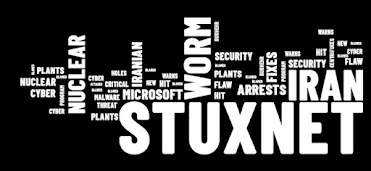Stuxnet: The Super Sneaky Computer Virus That Changed Everything
In the world of computers and the Internet, there is one prominent story, which is about a very special computer virus called Stuxnet. It's not like a virus tries to steal your personal information or slow down your computer. Stuxnet had a secret mission, and it was so clever that it forever changed the way we think about computer security.
The beginning of Stuxnet
Imagine this:
It was 2010 and people around the world
were starting to hear about a mysterious computer virus called Stuxnet. But
here's the remarkable thing: Stuxnet had been quietly doing its dirty work for
a long time before anyone noticed. This is not a typical virus created by
cybercriminals. It is so advanced that experts are beginning to doubt it is a
country at all. But why would a country create a virus?
Stuxnet's superpowers
One of the things that made Stuxnet so
special was its superpowers. He used what is called a “zero-day vulnerability”.
This may sound complicated, but it just means that Stuxnet knew about computer
weaknesses that no one else knew about. It's like a secret key that allows
Stuxnet to sneak into computers and do its work.
But that's not all. Stuxnet is a master of disguise. He pretends to be a good software guy, like someone wearing a trendy costume for Halloween. This allows him to sneak into the computer and do his work without anyone suspecting anything.
Secret Target: Iran's nuclear
program
Now here's the most surprising part:
Stuxnet had a specific job, and that
job was to play with something big. It targets so-called SCADA systems, which
are like the brains of large machines installed in places like power plants and
factories. But what is so important that a virus like Stuxnet is needed?
It turned out that Stuxnet was
created to interfere with Iran's nuclear program. Iran has used the SCADA
system to control machines that support the country in the nuclear field. And
Stuxnet was designed to crash these machines.
People began to guess that Stuxnet was created by the United States and Israel because it was simply too advanced for traditional cyber criminals.
Impact of Stuxnet
Stuxnet did not disappear after its
discovery. She left a lasting impact on the world of computer security and
international relations.
Real damage in Iran
In Iran, where Stuxnet was used, it
caused real damage. This destroyed about a thousand machines and was very
expensive to repair. More importantly, it slowed down Iran's nuclear program.
A Wake-Up Call
Stuxnet served as a wake-up call to all
players in the world of IT security. He has shown that computer viruses can be
used as powerful weapons in international conflicts. The fact that a virus can
damage a physical machine is a game changer. The era of cyber war
Stuxnet marked the
beginning of a new era:
era of cyber warfare. This sets a precedent for allowing countries to use computer viruses and cyber attacks as tools to achieve their goals. After Stuxnet, similar attacks and espionage campaigns were reported around the world.
Lessons Learned
The Stuxnet story
teaches us some important lessons:
Always be wary of
complex viruses:
Stuxnet is extremely smart. This
teaches us that we need to be vigilant and protect our computers from sneaky
viruses like these.
Fix weaknesses
quickly:
Stuxnet used hidden tricks known as
“zero-day vulnerabilities.” This means that as soon as we detect problems in
our computer systems, we must resolve them to prevent viruses from exploiting
them.
Don't trust
everything:
Stuxnet presents itself as good software.
It reminds us to be careful with what we download and install on our computers.
Protect important systems:
It also made us realize that essential
elements like power plants and water systems need additional protection against
sneaky viruses.
The blurred line
between cyber warfare and real war:
Stuxnet blurred the lines between traditional warfare and cyber warfare. This got us thinking about creating rules that define what is and is not acceptable in cyber warfare.
Stuxnet's legacy
More than a decade later, we still
remember Stuxnet as a remarkable computer virus. It changed the way we think
about IT security and showed us how powerful cyberattacks can be in the real
world. It also forced us to think about the ethics and law surrounding
cyberwarfare, sparking discussions about the international rules that apply to
cyberspace.
In short, Stuxnet was a revolutionary
cyberattack that left an indelible mark on history. Its complexity, specific
goals and specific consequences have reshaped the world of cybersecurity and
international relations. As we move forward, we must remain vigilant and learn
from the Stuxnet story to better protect ourselves and our critical systems
against the ever-changing world of cyber threats.

